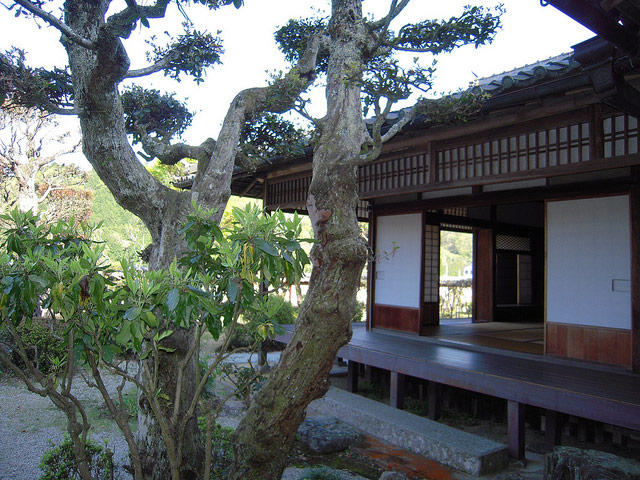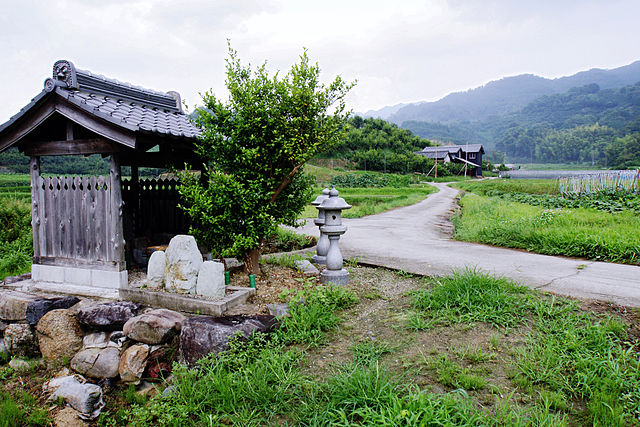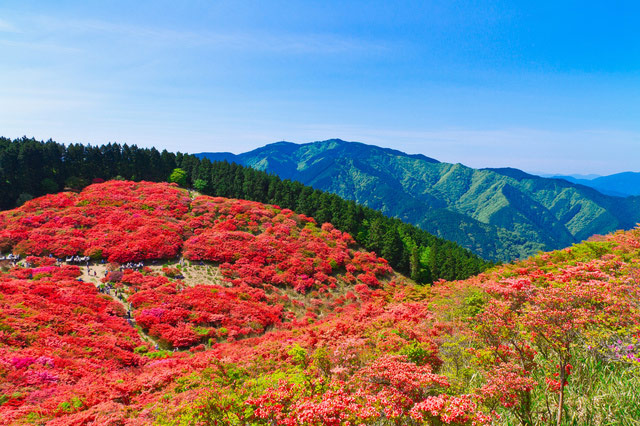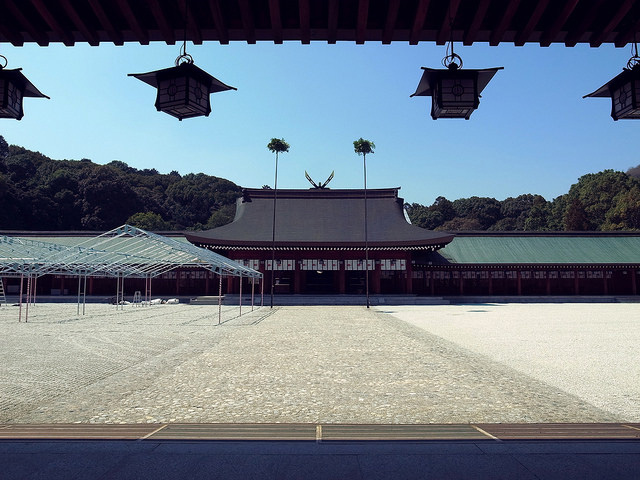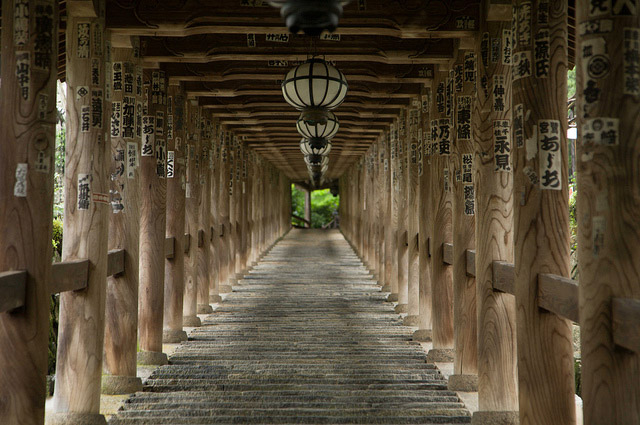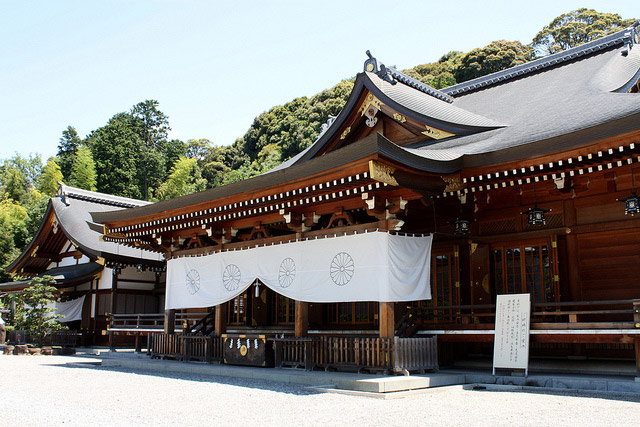
50 things to do in Nara, Japan's Oldest Capital
Located just a little south of Osaka and Kyoto, Nara prefecture is surrounded by many green mountains, has a number of World Heritage temples and shrines, naturally beautiful mountaintop scenery, historical roads that cannot be accessed by cars and so much more. Here in this article we are going to introduce 50 great things to do in Nara.
This post may contain affiliate links. If you buy through them, we may earn a commission at no additional cost to you.
41. Kyu Yagyū Hankaro Yashiki
Located in Yagyu town in Nara prefecture is the samurai residence of the Yagyu feudal clan of long ago. Formerly the retirement home of the chief retainer of the Yagyu clan, it is currently used as a museum of the Yagyu clan and is open to the general public. It has been designated as a cultural asset of Nara prefecture. Nearby is the Yagyu Hachisaka Shrine, the Yagyu tea house, the Yagyu Japanese iris garden, the Yagyu Mazakizaka Kenzen Dojo and so on. With so many historical spots, you should take a walk and look around.
HP: www.yagyu.com (Japanese Only)
Address: 155-1 Yagyu-cho, Nara-shi, Nara (Google Map)
42. Mountain road [16km hiking course] (Tenri~Sakurai)
This hiking course is recommended for those who want to walk comfortably along the Nara basin surrounded by the slight elevation of the mountains. You can make a pilgrimage to many of the places, landmarks and historical spots featured in ancient books and poems. It’s like a path that invites you to “The ancient world of romance”. This path has many ups and downs so be sure to come wearing your sports shoes. (※Below is a printable map from the web).
HP: www3.pref.nara.jp/miryoku/aruku/1195.htm (Japanese Only)
Address: Between Tenri Station and Sakurai Station (Google Map)
43. Mount Katsuragi (Katsuragi)
PIXTA
Despite having a fairly easy climbing course, if you ride the ropeway you can get to the summit almost instantly. At the summit, there is an azalea garden and during the spring crowds of people come to view the flowers. In summer there are aster flowers and Indian lotuses. In fall there are lycoris flowers, ginko and persimmons and in winter, plums, water lilies, early flowering cherry blossoms and so on. At Mount Katsuragi you can fully enjoy the seasonal flowers. At the ropeway terminal, there is an observatory which is recommended for sightseeing groups.
HP: goseshikankou.jp/index.html (Japanese Only)
Address: 2569 Kujira Gose-shi, Nara (Google Map)
44. Kashihara Jingu Shrine (Kashihara)
This Shinto shrine was built in 1890 (Meiji 23) by the Emperor Meiji to worship the first Emperor of Japan, Emperor Jinmu. Emperor Jinmu was said to have lived till the age of 137, therefore for those who visit this shrine, it is believed to deliver good health and longevity. It is a stop on the Kintetsu railway which runs express trains north to Kyoto, east to Osaka, and west to Yoshino. So you can move around in a short period of time. 。
HP: www.kashiharajingu.or.jp (Japanese Only)
Address: 934 Kume-cho, Kashihara-shi, Nara (Google Map)
45. Tsubosaka-dera (Takaichi)
It is a temple built on the mountain of Tsubosaka that overlooks the Nara basin between the main 3 mountains and other mountains of Nara in the north side and at the same time you can see Yoshino mountain, the famous cherry blossom spot in the south side. From spring to early summer, yellow roses, azaleas and lavender flowers are in bloom. Then in fall the entire area is filled with fall colors which spread their red and yellow colors to the neighboring mountains.
HP: www.tsubosaka1300.or.jp (Japanese Only)
Address: 3 Tsubosaka Takatori-cho, Takaichi-gun, Nara (Google Map)
46. Kimpusen-ji (Yoshino)
Kimpusen-ji is a symbol of Yoshino mountain which is known as “Japan’s number one cherry blossom spot”. It’s great hall which holds the wooden statues of the two guardian Deva Kings is the second largest wooden structure after the Daibutsuden in Todaiji and is a designated cultural treasure. Also, Yoshino mountain has been dedicated in its entirety as a UNESCO World Heritage site and is considered a spiritual “power spot”.
HP: www.kinpusen.or.jp (Japanese Only)
Address: Yoshinoyama Yoshino-cho, Yoshino-gun, Nara (Google Map)
47. Hase-dera (Sakurai)
The beautiful flowers of Japan’s four seasons can be seen at this temple. During spring the sakura and peonies bloom, in summer the Hydrangeas, in fall the red maple leaves and in winter the tree peonies. Originating in the year 686, this temple’s thousands of monuments and its giant 10 meter tall statue of the Eleven Faced Kannon is a must-see.
HP: www.hasedera.or.jp (Japanese Only)
Address: 731-1 Hase Sakurai-shi, Nara (Google Map)
48. Omiwa Jinja Shrine (Sakurai)
Said to be one of Japan’s oldest Shinto shrines. It is famous as a strong “power spot” and many festivals are held here throughout the year. In ancient times, the deity of the shrine was said to be a god of nation building and a protector of daily life. Even today it continues to thrive as pilgrims from all over the country come to this shrine to pay their respects. For tourists, you can also eat Sakurai city’s famous “nyumen” noodles and spend your time relaxing here.
HP: oomiwa.or.jp/ (Japanese Only)
Address: 1422 Miwa Sakurai-shi, Nara (Google Map)
49. Abe Monju-in (Sakurai City)
Established in the year 645 and belonging to Japan’s oldest temple, these 5 statues which are designated national treasures are a must see! You can thoroughly enjoy the beauty of the sakura in spring or the red leaves in fall. After your visit you can receive green tea and traditional sweets and experience a moment of tranquility.
HP: www.abemonjuin.or.jp/index.html (Japanese Only)
Address: 645 Abe Sakurai-shi, Nara (Google Map)
50. Somen shop Morisho (Sakurai)
From 1300 years ago to today, our standard for making soumen has been kneading wheat flour, rolling it into cylinders and stretching it out like rope. Here in Miwa, you can eat at the birthplace of Miwa soumen, here!. In the summer, you should try the cold “soumen” and in the winter “nyumen” (warm soumen).
HP: morisho.digiweb.jp/oshinagaki.html (Japanese Only)
Address: 535 Miwa, Sakurai-shi, Nara (Google Map)
You may also like:
[Travel tips in Japan]
38 Tips to Save Money While Traveling in Japan
The Perfect Guide to Traveling by Train in Japan
What you Should Know about the JR Pass while traveling in Japan
10 fun details in Japan to keep an eye out for
[Osaka Travel]
15 Ways to Enjoy Osaka On a Budget
11 Places to Experience Japanese Culture in Osaka
[Kyoto Travel]
50 Things You Must Do in Kyoto
15 Great Ways to Enjoy Kyoto on a Budget
10 Places in Kyoto to Play Dress Up in Traditional Kimono
[Japan Travel]
47 Tourist Attractions in Japan’s 47 Prefectures
50 Magnificent Views in Japan that You Shouldn’t Miss
30 reasons to go to Japan before you die
30 Most Popular Japan Sightseeing Spots for Foreigners (2014)
20 Japanese places chosen by travelers that no one should miss (2013)
A Guide to 18 UNESCO World Heritage Sites in Japan
15 Beautiful Japanese Villages You Must Visit
30 shrines and temples in Japan to get lucky charms for love
16 Must-See Flower Gardens Around Japan
12 Recommended Japanese Power Spots
30 things to experience when you come to Japan
[Tokyo Travel]
50 Things to Do in Ueno and Asakusa Area
14 things to do in Yanesen (Yanaka, Nezu, and Sendagi)
10 Japanese Cultural Experiments You Can Try In Tokyo
15 Great Ways to Enjoy Tokyo on a Budget
[Hokkaido Travel]
11 Ways to Enjoy the Sapporo Area on a Budget
20 Magnificent Sights in Hokkaido You Should Check
[Fukuoka Travel]
[Okinawa Travel]
The information in this article is accurate at the time of publication.

